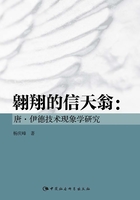
Preface
Qingfeng in this first interpretation of my works in a book in Chinese,has taken my metaphor of the Albatross and turned it to good use. My original use of this metaphor was in Chasing Technoscience(2003) and refers to a literary piece all American elementary students were required to read,The Rime of the Ancient Mariner . In that story a sailor shot and killed an albatross which was trailing his ship-this was considered bad luck and so the captain had the bird's corpse tied to the sailor’s neck. In my chapter,“If phenomenology is an albatross,is postphenomenology possible?” I was reflecting on my then thirty year experience with the difficulty of overcoming a badly mistaken notion of phenomenology as both a “subjectivist” and “anti-scientific” type of philosophy. To rid myself of this albatross,I had turned to the modifications upon classical phenomenology which had emerged out of an equally long history of reflections upon science and technology-or technoscience. Qingfeng has taken my albatross and re-animated it as again “flying”.
His approach to my work is unique:he sees its primary motivation and development arising out of my earlier and signature work on auditory phenomena and the human experience of hearing,listening and sound. It is true that mid-career,my first original work in phenomenology was Listening and Voice:A Phenomenology of Sound(1976),reprinted in a larger second edition,Listening and Voice:Phenomenologis of Sound(2007). And I had used some examples of technologies in the first,and more in the second editions. But this mid-career period was actually more widely productive. In 1977 I published my best known book Experimental Phenomenology,also re-published as a second edition,Experimental Phenomenology:Multistabilities(2012). And,multistability has become one hallmark of postphenomenology. Then,soon after,my Technics and Praxis:A Philosophy of Technology(1979) was published and often cited as the first English language book in the philosophy of technology.
Then,regarding China-my first trip to China was in 2004,to Northeastern University in Shengyang. Together with Andrew Feenberg and Langdon Winner,the three of us did seminars and lecture s introducing Western philosophy of technology topics to a large,all China audience. Then again in 2006 to Beijing,Peking University,and 2007 to Shanghai,The Academy of Social Sciences(and also to several other universities in both regions) I again did lectures to university audiences. As a side result,several of my books have been translated and published in Chinese,but Qingfeng is the first to do a systematic interpretive book on my overall opus. For that I am grateful and respectful.
Before ending this preface I would like to underline a few outcomes from the turns in and from phenomenology which my career has taken. First,postphenomenology has taken its shape from the practices of many of the 20th-21st century STS(science-technology studies) disciplines. In my prevous Technoscinece Research Group with its research seminar at Stony Brook(1998-2012),we did case studies of what is known as the “empirical turn” sort which science studies follows. This practice helped develop sensitivities to “materiality” both with respect to technologies,but also with respect to human embodiment. Put in a freamework of an inter-relatonal ontology,this meant that only relational phenomena are focal. Thus postphenomenology abandons “subect-object” thinking and becomes praxical. And,as I discovered earlier,if I practiced phenomenology,contrary to Husserl who found essences——I found multistabilities(which today are familiar to many sciences as well). And,as work accumulated in science-technology studies,it has become apparent that the Western master narrative about science and technology is badly flawed-in my recent work it has been modified in a multi-or pluricultural direction.
Don Ihde,Distinguised Professor of Philosophy,Emeritus,Stony Brook University